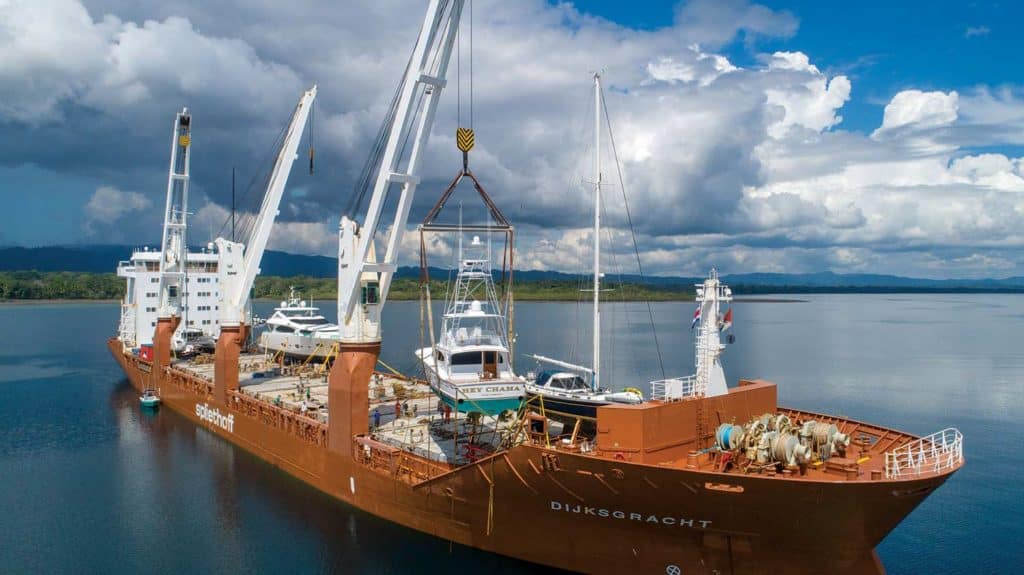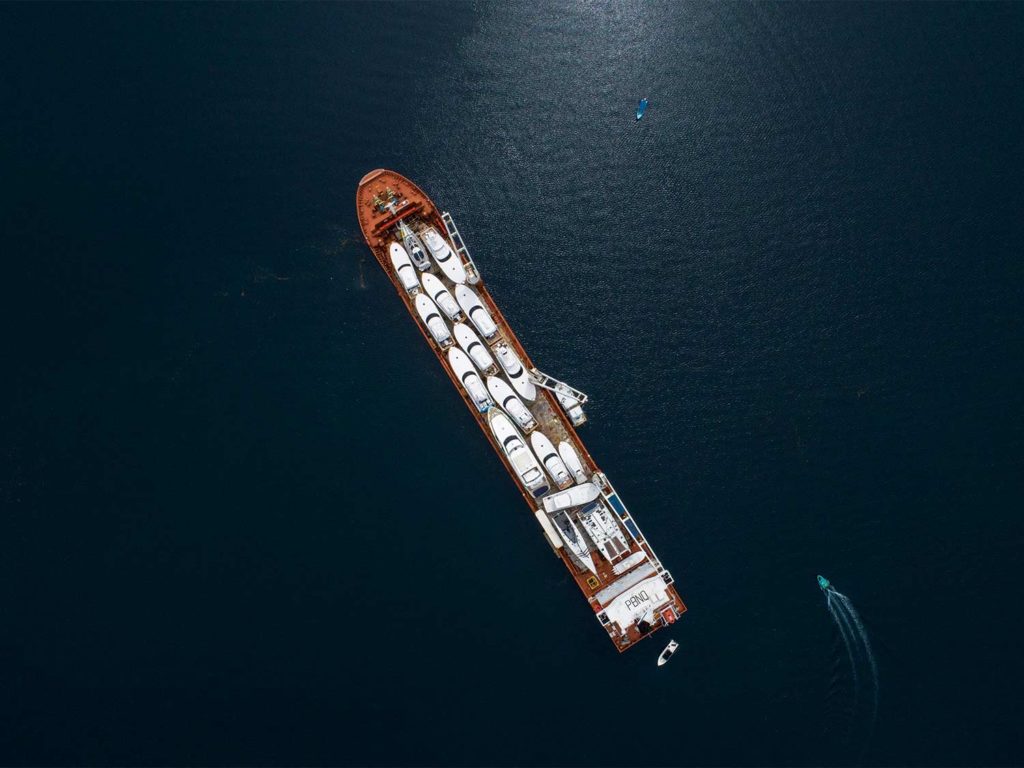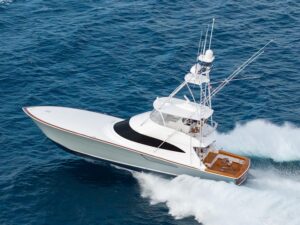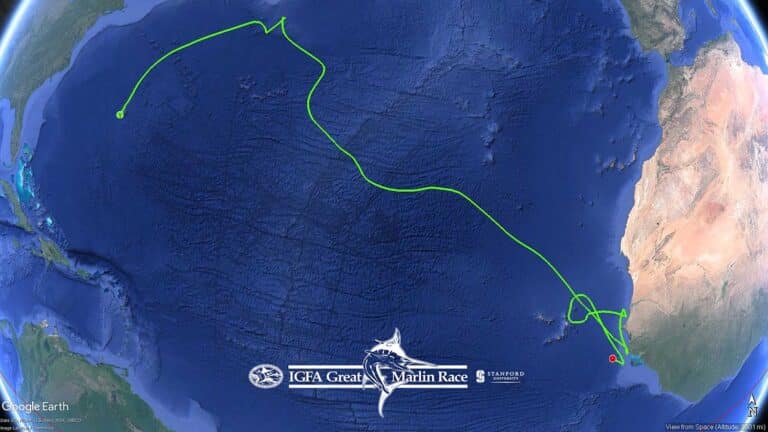
Well, it’s that time of year again—time to pack up the boat and head to our next destination. With today’s boats—and even bigger fuel tanks—many destinations that were once considered remote or even off-limits are now more accessible than ever, either by shipping the boat or traveling on its own bottom.
I have always thought it would be a fun adventure to deliver a boat to an exotic destination: The experience of seeing new landscapes, meeting people of other nationalities, and enjoying unfamiliar foods are just part of the attraction. I can just imagine the crystal-blue waters, warm sunny days, and fishing the entire trip. It’s almost a dream vacation, and the result is catching billfish one after another in places such as Magdalena Bay, the Dominican Republic or Cape Verde. I would be game to deliver a boat to these destinations without thinking twice, or so I once thought.
The Uncertainty
There is a tremendous amount of preparation and uncertainty in running a boat to a new location, especially a Third World country. What I would consider being the most important issue is crew safety. Many of these trips have stop-offs or layovers in unsettled countries where civil unrest is common, and being on a high-dollar, luxurious sport-fishing boat can make you an easy target. Do you carry weapons to protect yourself? This can be a very difficult decision to make, mostly because firearms can be legal in one country but not at your next port. The risk for physical harm is unlikely, but it is something that cannot be ignored entirely.
Having access to medical care is another issue for the crew. When we were fishing in Guatemala and my son became extremely ill, it was a nightmare. The treatment options were on the opposite end of the spectrum from what we are accustomed to here in the US, and the language barrier didn’t help either. We discussed hiring a private plane to fly him to Miami for treatment; fortunately, we were able to use our healthcare network to find an English-speaking doctor who communicated with a doctor in the US, and soon my son made a full recovery, luckily.
What happens if someone slips and falls on the boat and is injured? Who covers the cost of these treatments? Will your crewmembers’ health insurance cover those damages? What happens if they don’t have health insurance—will the boat’s coverage pick it up? What if the crewmember is not a full-time employee and just along for the delivery? There are a plethora of areas where boat owners can be exposed to financial risks when traveling in general, but adding a Third World country into the mix makes it much more complicated—if they are injured in a region that even has medical coverage.
What about the safety of the boat? What happens when you hit something while chugging at 10 knots at night and you need a wheel changed, or something else happens that you cannot easily repair? Now you have to find a mechanic who’s capable of fixing your issue, and who has access to the parts you need. We always carry spares on board, but it’s usually that one part we don’t have. How do you pay the bill? Will they take a credit card, or is it cash only? And what about the abuse the boat could incur? There are several crossings that can get pretty scary, with high winds and rough seas.
There are so many other concerns to consider, such as the weather, logistics and scheduling, and planning for unexpected delays. It’s seldom that a trip goes completely as planned. The crew is always at the mercy of the circumstances. Meanwhile, the owners have scheduled their time off and expect the boat to be there by a certain date and ready to fish.

Cost and Liability
So now I’m flashing back to those proposed exotic adventures and the cost and liability associated with them, and wonder, Is it worth it? I started by adding at least two more crewmembers. Then, the cost of their airfare to send the temporary crew back home, plus fuel expenses and dockage for the trip. Now I’m thinking, Wow. Additional expenses for when we need spare parts, a mechanic, unforeseen medical issues, and boat maintenance, putting things back together. Now my hypothetical fun-in-the-sun vacation has turned into something that should really be taken a little more seriously. As a boat owner, I have a significant amount of money and liability at stake. Perhaps it’s time to consider another option.
At this point, I contacted Lauren Hartman with Sevenstar Yacht Transport. She is well-known in the sport-fishing industry for shipping boats all over the world, so I described my dream fishing vacation to her and, that once I realized this is a major task, asked for her expert advice.
Read Next: Keep your boat looking and smelling great with these techniques.
Hartman explained that there are many benefits to shipping a boat rather than running one. As a professional asset manager who considers a sportboat to be a valuable asset, I was more interested in the cost, but she steered me in a different direction. My biggest concern was the safety of the crew; however, there is no need for that because when you ship the boat, you need your crew only to get the vessel to the departing and arriving ports of call.
Hartman explained that many of the other concerns will be mitigated altogether, so there’s no need for additional crew pay, and/or fuel, dockage or travel expenses. The shipping company carries its own insurance coverage and takes care of the logistics, so you will have a clear understanding of when to load your boat and when to have the crew at its destination to pick it up.
After going through the exercise of shipping your boat versus running it on its own bottom, I’m definitely leaning toward shipping. Not only do I keep my boat and crew safe, but I’ll also have peace of mind—and, surprisingly, the cost might be less expensive. At the very least, it’s an interesting exercise to consider when planning for that next big adventure.







